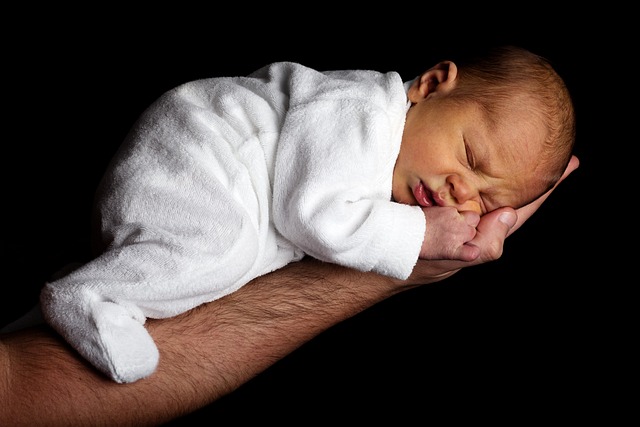- What Are the Signs of Dehydration in Infants?
- Recognizing the Signs of Dehydration in Infants
- Prevention of Dehydration in Infants
- When to Seek Medical Help
- Conclusion
What Are the Signs of Dehydration in Infants?
Dehydration in infants is a serious health concern that requires immediate attention. Dehydration occurs when an infant’s body loses more fluids than it takes in, leading to an imbalance that can disrupt essential bodily functions. Recognizing the signs early is crucial for preventing further complications. Below are key signs of dehydration in infants, along with information on prevention and treatment.
Recognizing the Signs of Dehydration in Infants
The signs of dehydration in infants can vary depending on the severity of the condition. It’s essential to monitor for these symptoms, especially if your baby has been unwell with diarrhea, vomiting, or a fever.
Mild to Moderate Dehydration
Infants with mild to moderate dehydration may show subtle signs, but early detection is important:
- Reduced activity: Babies may appear less playful or energetic than usual.
- Dry mouth and fewer tears: Infants with dehydration often have a dry, sticky mouth and may produce fewer or no tears when crying.
- Sunken soft spot: A noticeable depression in the soft spot on the baby’s head (fontanelle) can indicate dehydration.
- Less frequent urination: Infants may have fewer wet diapers than usual.
- Loose stools or decreased bowel movements: Depending on the cause, dehydration may present as either loose stools or fewer bowel movements.
Severe Dehydration
When dehydration becomes severe, more alarming signs develop:
- Extreme lethargy: The baby may be excessively sleepy or difficult to wake.
- Sunken eyes and skin changes: Severe dehydration can cause sunken eyes and wrinkled skin.
- Cold or discolored hands and feet: Poor circulation due to fluid loss can lead to cool, discolored extremities.
- Very low urine output: In extreme cases, babies may urinate only once or twice a day.
Causes of Dehydration in Infants
Dehydration in infants is typically caused by a loss of fluids through vomiting, diarrhea, fever, or inadequate intake of fluids, especially during illnesses like gastroenteritis. Other contributing factors include hot weather, overexertion, and feeding issues.
Treating Dehydration in Infants
Treatment for dehydration depends on its severity.
- For mild dehydration, offering small, frequent sips of an oral rehydration solution (ORS) is effective. ORS contains the right balance of water, salts, and sugars to help rehydrate the body.
- Severe dehydration often requires medical intervention. Infants may need intravenous (IV) fluids in a hospital to restore their fluid balance safely. Breastfeeding or formula feeding should continue if possible, but clear guidelines from a healthcare provider are essential.
Prevention of Dehydration in Infants
Preventing dehydration involves ensuring that babies receive enough fluids, particularly during illness. For infants who are vomiting or have diarrhea, giving ORS can help maintain their hydration levels. In hot weather, offer more frequent feedings to prevent dehydration(sususz kidshealth). It’s also crucial to seek medical advice if your baby refuses fluids for several hours or shows any signs of dehydration.
When to Seek Medical Help
Immediate medical attention is required if an infant shows signs of severe dehydration, such as a sunken fontanelle, lethargy, or very low urine output(susuz healthy)(sussuz nhs). If an infant refuses to drink, vomits consistently, or shows no improvement after home treatment, a healthcare provider should be contacted.
Conclusion
Recognizing and treating dehydration in infants early can prevent serious health complications. Parents should be vigilant in monitoring their babies for signs of dehydration and take appropriate action, whether it’s offering rehydration solutions at home or seeking medical help for severe cases.
The following post may interest you
How Much Sleep Does a Newborn Need? Sleep Patterns Explained
Sources
Understanding Clinical Dehydration and Its Treatment:
https://www.sciencedirect.com/science/article/abs/pii/S1525861008001072
Hypernatremic Dehydration in Newborn Infants: A Review:
https://dergipark.org.tr/en/pub/ulutasmedj/issue/13514/163475
Diagnosis and Management of Dehydration in Children:
https://www.aafp.org/pubs/afp/issues/2009/1001/p692.html
Validity and Reliability of Clinical Signs in the Diagnosis of Dehydration in Children:
Performance of Clinical Signs in the Diagnosis of Dehydration in Children with Acute Gastroenteritis:
https://www.ncbi.nlm.nih.gov/pmc/articles/PMC4384849
Interrater Agreement in the Assessment of Dehydration in Infants:
https://academic.oup.com/tropej/article/43/2/119/1619812
Dehydration in Infancy and Childhood:
The Accuracy of Clinical Signs in Detecting Dehydration in Children:
http://www.mejfm.com/Newarchives2013/MEJFMNovember2013.pdf#page=28

